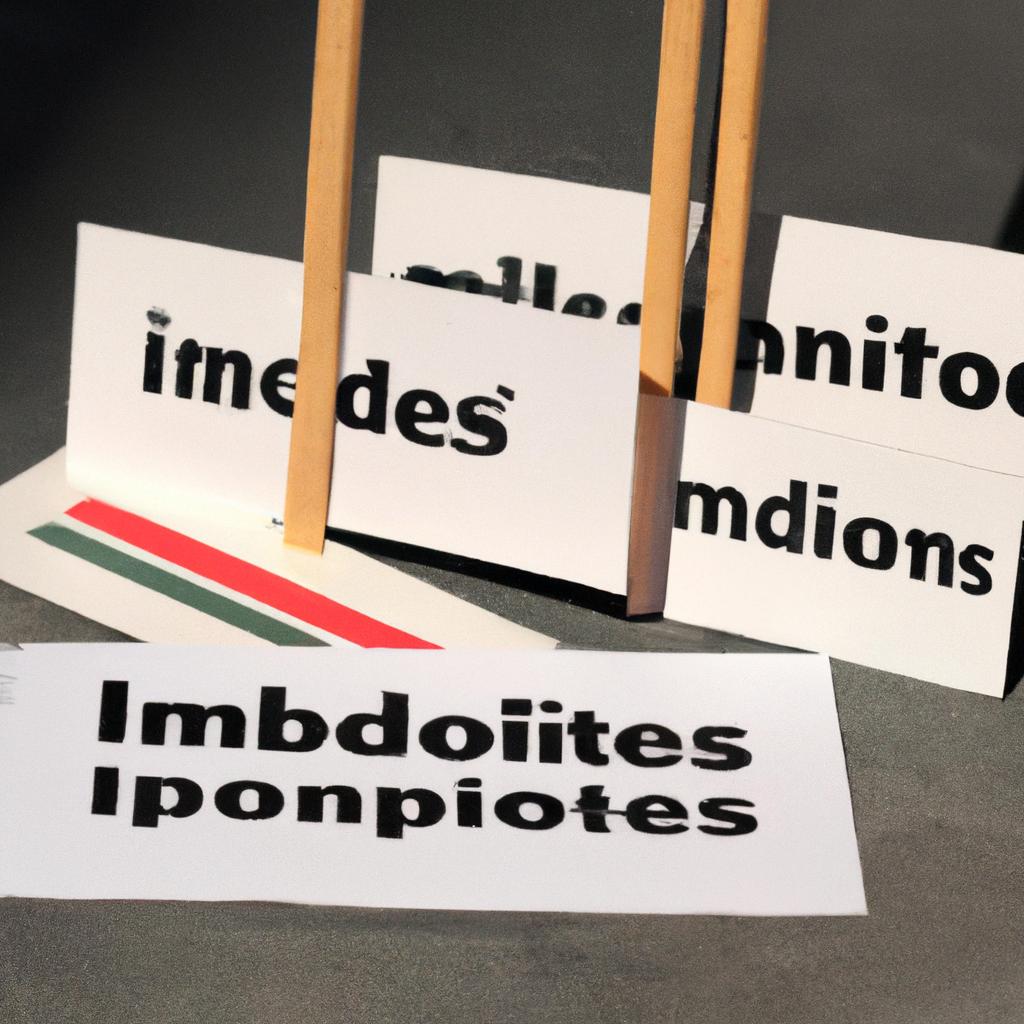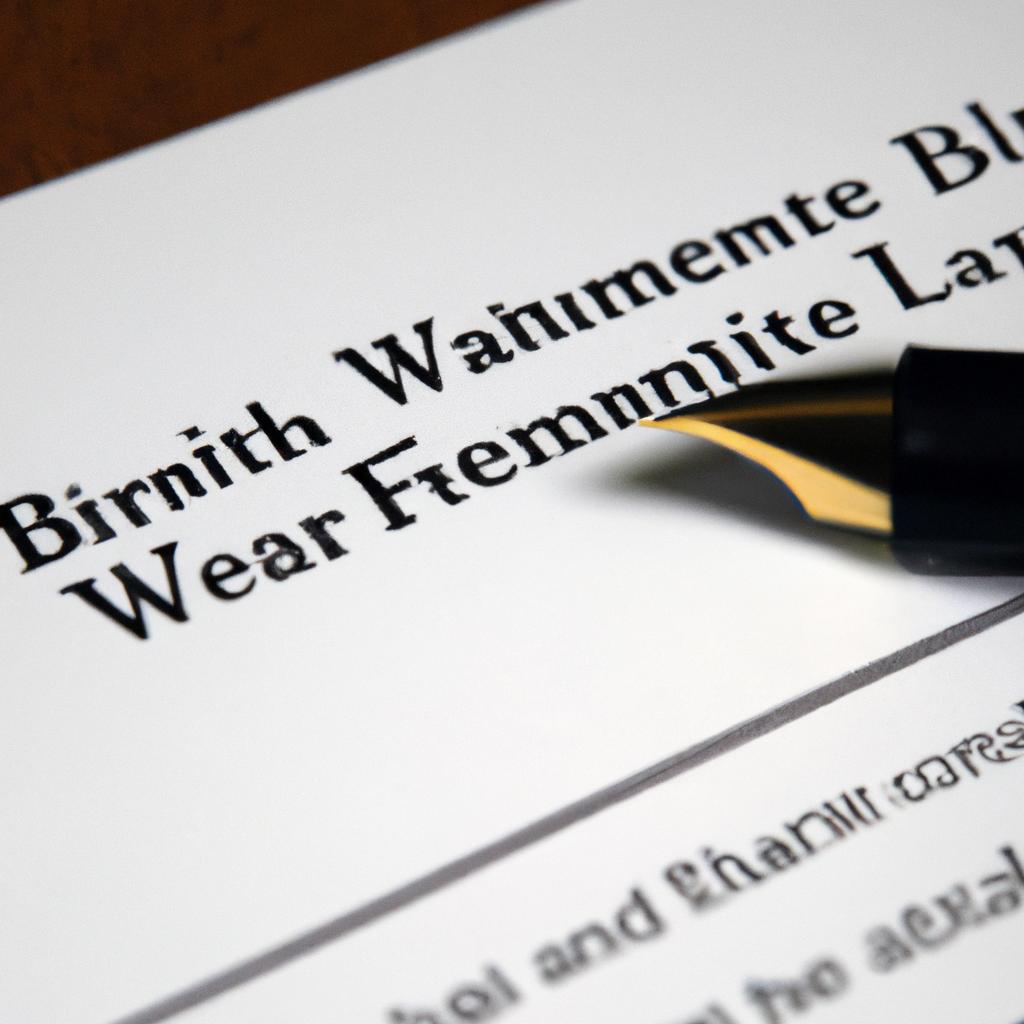In the intricate realm of estate planning, the selection of beneficiaries is a crucial decision that requires careful consideration and precision. As seasoned practitioners at Morgan Legal Group in New York City, it is imperative for us to shed light on the intricacies of who may be deemed ineligible to benefit under a will. While the process of bequeathing one’s assets may seem straightforward, there exist certain individuals who are legally restricted from being named as beneficiaries. Join us as we dissect the limitations and restrictions surrounding the selection of beneficiaries in a will, providing clarity and insight into this complex aspect of estate planning.
Ineligible beneficiaries under the law
When it comes to drafting a will, it is important to understand who is considered an ineligible beneficiary under the law. There are certain individuals who are prohibited from being named as beneficiaries in a will, regardless of the wishes of the testator. It is crucial to be aware of these restrictions to ensure that your will is valid and legally binding.
Under the law, the following individuals are typically ineligible to be named as beneficiaries in a will:
- Minors: Individuals under the age of 18 are generally not permitted to inherit property directly. A trust may need to be established for their benefit.
- Incapacitated individuals: Those who are deemed mentally incapacitated may be unable to inherit property directly, as they may not have the legal capacity to manage their assets.
- Creditors: Individuals who owe money to the deceased may not be able to inherit property until their debts have been settled.

Restrictions on minors and incapacitated individuals
Beneficiaries of a will must meet certain legal requirements in order to be eligible to receive assets from the estate. Minors, individuals under the age of 18, are generally not allowed to inherit property directly. In the event that a minor is named as a beneficiary, the assets will be held in trust until the minor reaches the age of majority.
Similarly, incapacitated individuals who are unable to make decisions for themselves are also restricted from being beneficiaries of a will. This includes individuals with severe mental or physical disabilities. In some cases, a court-appointed guardian may be named to manage the assets on behalf of the incapacitated individual. It is important to consult with an experienced estate planning attorney to ensure that your beneficiaries are legally eligible to inherit your assets.

Excluding creditors and witnesses from benefiting in a will
In the drafting of a will, it is crucial to exclude certain individuals from being named as beneficiaries. Creditors of the deceased, whether personal or financial, are not eligible to benefit from the contents of a will. Their claims must be resolved through the probate process before any assets can be distributed to beneficiaries. Excluding creditors as beneficiaries ensures that the deceased’s wishes are properly carried out without interference from outstanding debts.
Similarly, witnesses to a will should not be named as beneficiaries, as this presents a conflict of interest. The role of a witness is to attest to the signing and execution of the will, ensuring its validity in a court of law. Allowing a witness to benefit from the will could call into question the impartiality and integrity of the document. By excluding witnesses from benefiting in a will, the testator can safeguard against potential legal challenges and preserve the integrity of their final wishes.
Precautions to take when naming beneficiaries in a will
When naming beneficiaries in a will, it is crucial to exercise caution and careful consideration to ensure that your wishes are carried out accurately and efficiently. There are certain precautions that should be taken to avoid any potential disputes or complications in the future. Here are some key points to keep in mind:
Avoid naming minors: It is generally advisable to avoid naming minors as beneficiaries in a will, as it can lead to potential complications regarding the management of assets until the minor reaches the age of majority. In such cases, it may be more prudent to establish a trust to hold the assets until the beneficiary comes of age.
Q&A
Q: Who cannot be a beneficiary of a will?
A: There are certain individuals who may be excluded from being beneficiaries of a will.
Q: Can someone who is mentally incapacitated be a beneficiary of a will?
A: Typically, individuals who are deemed mentally incapacitated and cannot understand the contents of a will are unable to be beneficiaries.
Q: Are minors able to be beneficiaries of a will?
A: Minors cannot directly inherit assets from a will. Special provisions must be made, such as setting up a trust, to ensure that their inheritance is protected until they reach the age of majority.
Q: Can someone who has been convicted of a crime be a beneficiary of a will?
A: In some cases, individuals who have been convicted of a crime, especially if it involved harming the testator or other beneficiaries, may be excluded from being a beneficiary of a will.
Q: Is it possible for a creditor to be a beneficiary of a will?
A: Generally, creditors are unable to be beneficiaries of a will. Debts owed by the deceased should be settled before distributing assets to beneficiaries.
Q: Can someone who is not named in the will contest to be a beneficiary?
A: It is possible for individuals who believe they were wrongfully excluded from a will to contest and potentially become a beneficiary. However, this process can be legally complex and challenging.
To Conclude
In conclusion, the question of who cannot be a beneficiary of a will is a complex and multifaceted issue that requires careful consideration and legal expertise. While there are certain restrictions in place to protect the integrity of the will-making process, it is important to consult with a lawyer to ensure that your wishes are accurately reflected in your estate plan. By understanding the limitations and exceptions to beneficiary designations, you can help safeguard your loved ones and assets for the future. Remember, when it comes to your will, knowledge is power.
 Thank you.
Thank you.
As we go through life, we accumulate assets and possessions that have value to us. To ensure that these assets are passed on to our loved ones after we pass away, many of us create a will. A will is a legal document that outlines the distribution of an individual’s assets and possessions after their death. While creating a will, we carefully select beneficiaries who will inherit our assets. However, there are certain circumstances where a person cannot be a beneficiary of a will. In this article, we will discuss who cannot be a beneficiary of a will and the reasons behind it.
Who Cannot Be a Beneficiary of a Will?
- Minors
In most cases, minors (individuals under the age of 18) cannot be named as beneficiaries in a will. This is because minors are not legally capable of owning property. If a minor is named as a beneficiary in a will, the court will appoint a guardian to manage the assets until the minor turns 18. This process can be time-consuming and expensive, so it is best to avoid naming minors as beneficiaries in a will.
- Pets
Unfortunately, our furry friends cannot inherit assets through a will. Pets are considered personal property, and as such, cannot be named as beneficiaries. However, you can still ensure that your pets are taken care of after your death by setting up a pet trust, which designates a specific amount of money and a caregiver to take care of your pets.
- Non-Person Entities
Although it may seem obvious, it is important to note that non-person entities such as organizations, charities, or businesses cannot be named as beneficiaries in a will. This is because these entities cannot be heirs and are unable to inherit property. If you wish to leave assets to an organization or charity, it is best to do so through a trust.
- Witnesses and their Families
To ensure the validity of a will, two witnesses are required to sign it. However, these witnesses, as well as their spouses, cannot be named as beneficiaries in the will. This is to prevent conflicts of interest and avoid any allegations of fraud or coercion.
- Caregivers, Doctors, and Other Professionals
While it may seem natural to leave assets to the caregivers, doctors, or other professionals who have taken care of you during your lifetime, they cannot be named as beneficiaries in a will. This is to avoid any conflicts of interest, as they may be seen as taking advantage of the individual’s vulnerable state.
- Executors and Their Families
The executor of a will is responsible for carrying out the wishes outlined in the will. However, they cannot be named as beneficiaries, as this can also lead to conflicts of interest. Similarly, their spouses, children, and siblings also cannot be named as beneficiaries.
- Disqualified Heirs
Individuals who have been convicted of crimes such as murder or manslaughter are disqualified from inheriting through a will. This is known as the “slayer rule” and is in place to prevent individuals from profiting from illegal actions.
Exceptions to the Rule
While the above individuals cannot be named as beneficiaries in a will, there are some exceptions to the rule. For example, if a minor is your child, they can be named as a beneficiary in a will. Similarly, if a non-person entity is a designated beneficiary on a life insurance policy or retirement account, they can receive the assets.
Additionally, some states allow for a “homicide exception” where a disqualified heir can still inherit if they can prove that they did not cause the individual’s death intentionally or knowingly.
What Happens if an Ineligible Person is Named as a Beneficiary?
If an ineligible person is named as a beneficiary in a will, they will be excluded from inheriting any assets. In such cases, the assets will be distributed according to the applicable laws of the state.
To avoid this, it is crucial to regularly review and update your will. If you wish to change your beneficiaries, you can do so through a codicil, which is a legal document that amends your will.
In Conclusion
Creating a will is an important step in ensuring that our wishes are fulfilled after we pass away. It is essential to carefully consider and select beneficiaries in our wills to avoid any conflicts or legal issues. By understanding who cannot be a beneficiary of a will, we can ensure that our assets are distributed according to our wishes. It is also important to regularly review and update our will to reflect any changes in our lives and relationships.












